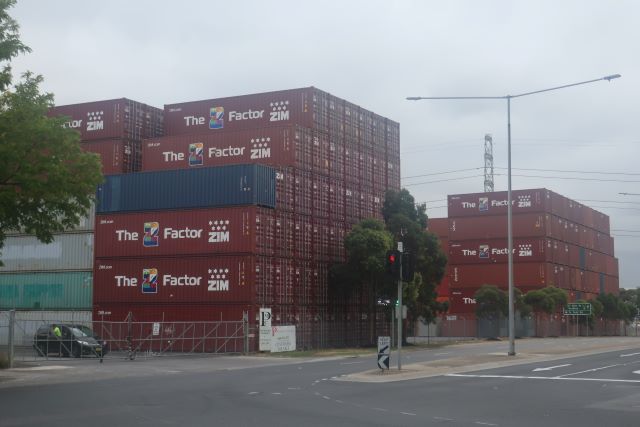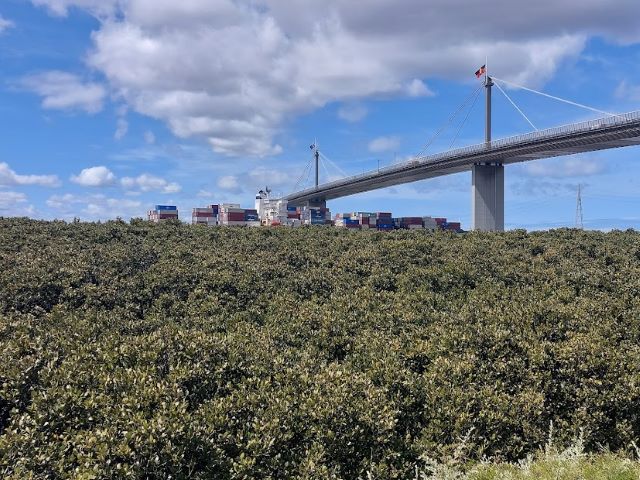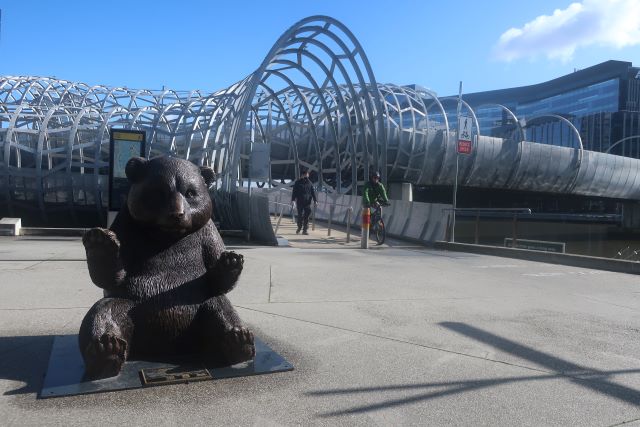COP28 and us
The COP28 climate talks in Dubai seem remote in spite of the urgency of the climate emergency.
The annual cycle of climate talks take place when November careers into December and end of year gatherings. And yet there is ‘so little cause for carollings’1 as poet Thomas Hardy wrote at the turn of the 20th century.
This year’s COP28 takes place with the war in Gaza in the foreground, with staggering loss of civilian life, human suffering and the displacement of populations.
COP28 will conclude with the first global stocktake of how nations are tracking towards the 1.5° of warming agreed in Paris in 2015. That agreement was reached in the immediate aftermath of the terrorist attack on the Charlie Hebdo offices in Paris. Public gatherings and marches that were to have taken place were banned. People left shoes in the street to represent the marches that could not take place.
I marked that time in Port Places.
‘Phase down or phase out’ (fossil fuels).
There is an appropriate focus at the conference on the implications of those two critical phrases: and where Australia will land.
The climate talks are reduced to a headline phrase, albeit a phrase on which our future depends. It’s easy to feel distant and dismiss the climate talks as having no value.
COP28 is also about collaborations and strengthening networks in a range of sectors. While COP is an agreement between nation states, cities play a huge role in climate action. Most people live in cities.
Lord Mayor Sally Capp, accompanied by Heat Officer Tiffany Crawford, participated in a panel on Urban Heat. She spoke of the need for ‘radical collaborations’ to reach a safer climate.
Cities can be 3° to 8° hotter than rural areas. The City of Melbourne has developed a Heat Management Plan which includes many and inventive ways to cool the city including more tree planting, roof gardens, and more recently ‘drain gardens’. Working alongside Mayors and Heat Officers in other countries is inspiring, and there is so much to learn from others.
Whereas the plenary sessions were overwhelmingly dominated by men, women played a far greater role in these networks.
COP does not cover greenhouse gas emissions from shipping. Yet leading shipping companies were at COP28 to advocate for the Internatinal Maritime Organisation to step up action on decarbonising shipping. They discussed how to bridge the significant price gap between fossil fuels and ‘green’ fuels such as ammonia and methanol. (Note that the externalities of fossil fuels are not factored into the price.) The combined shipping companies issued a declaration which included an end-date for building new fossil fuel-only vessels and a greenhouse gas pricing mechanism to offset the price premium of green fuels
Gavin Allwright, secretary general of the International Windship Association, is there, arguing for a greater use of wind in shipping. Wind, being free and abundant, doesn’t fit into a framework created around the cost of alternative fuels, even green fuels. There are also other, cheaper ways, of reducing emissions from shipping, he reminds us, such as vessel design, energy efficiency and optimising travel time. In other words, not rushing to a port only to have to wait at anchor for a berth to become available.
The COP meetings are hugely important to Pacific Island nations, of course, since their future survival depends on accelerated action on climate, as well as meaningful contributions to the loss and damage they are already experiencing.
Pacific Island nations rely on boats for inter-island communication and trade. Diesel for outboard motors not only emits greenhouse gases, but is expensive and polluting.
The Marshall Islands has a commitment to a 40% reduction in CO2 emissions by 2030 and complete decarbonisation in the shipping sector by 2050. Waan Aelõñ in Majel (Canoes of the Marshall Islands), fuses traditional canoe building techniques with modern technology promoting self reliance and sustainability, as well as strengthening cultural traditions.
Australia will contribute a foundational $100 million to the Pacific Resilience Facility.
1Thomas Hardy The Darkling Thrush
City of Melbourne Heat safe city overview
Belinda Smith for ABC Science Traditional boat building with a modern spin to reduce Marshall Islands’ reliance on diesel 5 September 2023
COP28 brings together the parties to the UN Framework Convention on Climate Change (UNFCCC).
5 Comments
-
-
Anne Callaghan
I do recommend making sure the audience knows quite how existential the threat of climate change is. Port Melbourne is particularly vulnerable; indeed it seems likely now that it is too late to stop it being inundated and being totally destroyed by 2045. Heartbreaking, but maybe it will wake up all the no voter-types (racists, capitalists etc) to the truth.
-
Bitty
Thank you Janet for a thoughtful and informative look at the COP meeting. Progress seems so slow, but getting every country’s agreement is also vital.




Anne Callaghan
A really interesting thoughtful look at COP28. Thank you